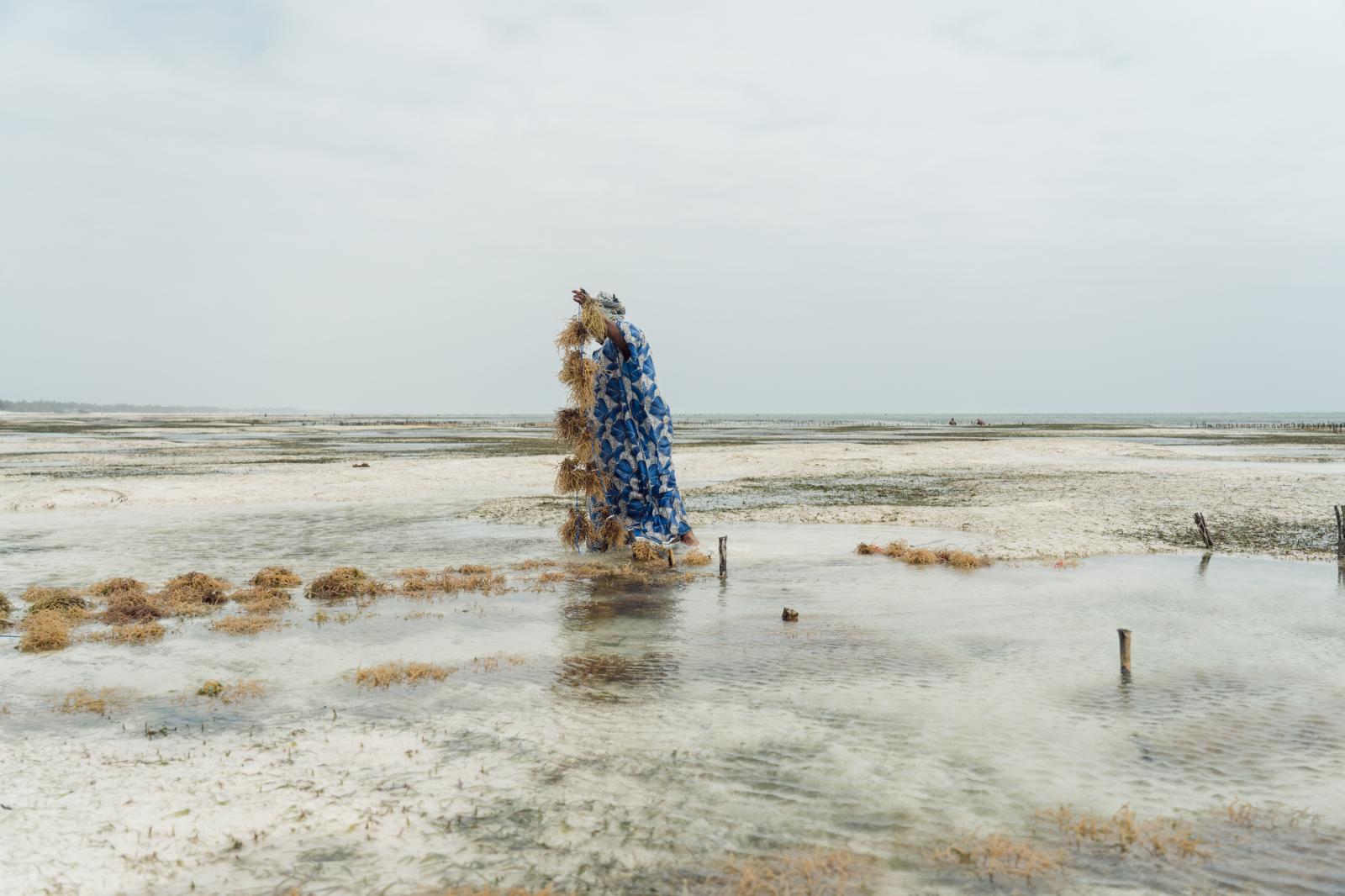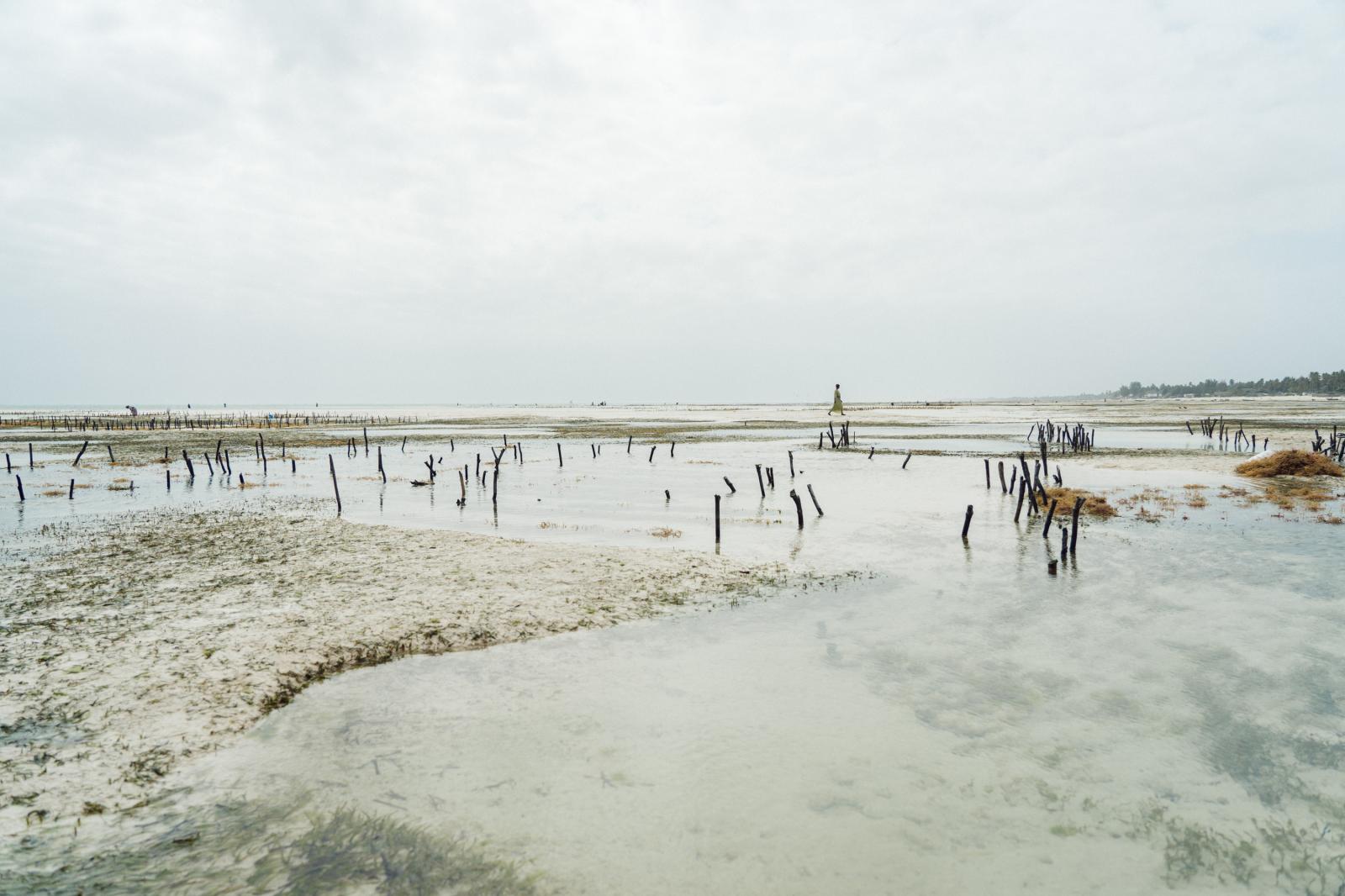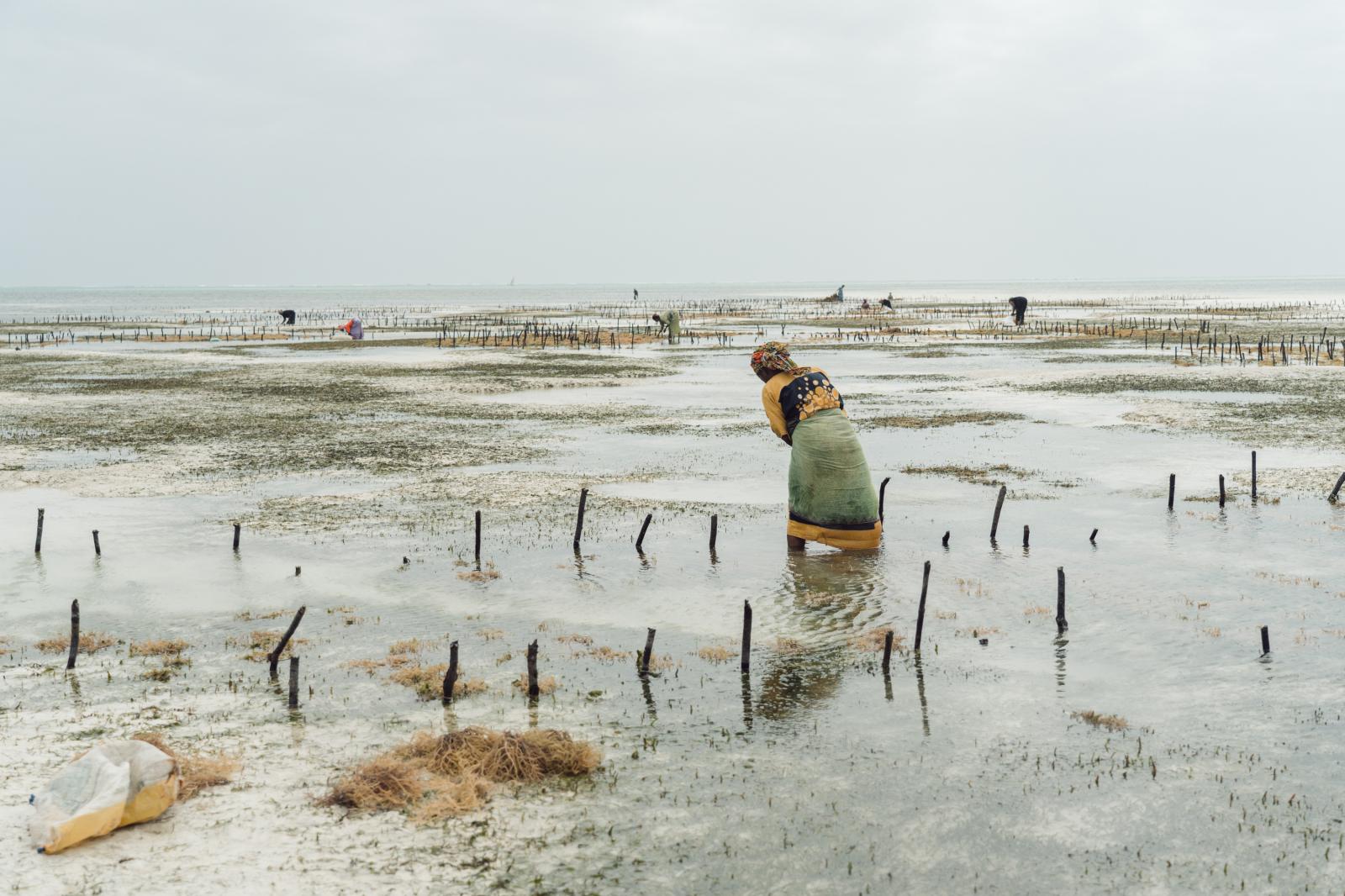Public Project
Seaweed Farming Against Gender Inequality and Climate Change
Zanzibar is the third-largest seaweed exporter in the world, with most of it being exported to Asia and Europe, where it is widely used as a base for cosmetics, toothpaste, medicine and food.
90% of seaweed farmers in Zanzibar are women. In traditionally patriarchal communities in Zanzibar, women tend to stay at home and look after their children. Seaweed farming has created a significant shift in gender relations, helping women to leave their homes, earn money and become financially independent.
Seaweed can play a vital role in fighting climate change by absorbing carbon emissions, and greenhouse gasses, and regenerating marine ecosystems. Large-scale seaweed farms could clean up oceans, restoring biodiversity and increase the productivity of aquaculture.
However, in recent years, the rising temperatures in the Indian Ocean have been killing seaweed due to bacteria called “ice-ice” growing on seaweed, causing it to die. To tackle this problem, marine biologists suggested moving seaweed farms to deeper, cooler waters. This shift to deepwater seaweed farming will require women farmers in Zanzibar to learn how to swim and adapt to the ever-changing seas.
6,616











